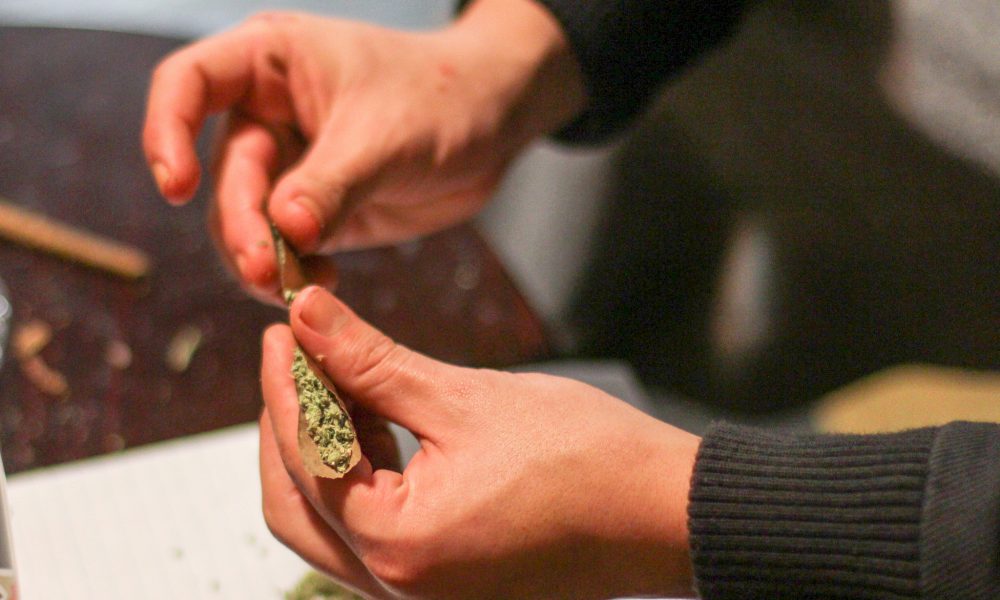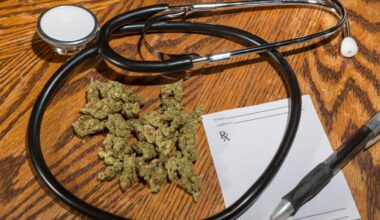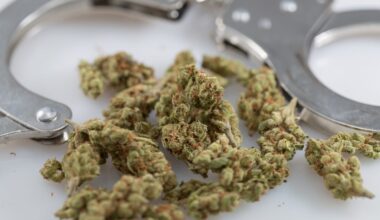St. Louis lawmakers have given preliminary approval to a local measure to broadly decriminalize marijuana in the city.
The proposal cleared the near-final “perfection” stage by the Board of Aldermen on Friday after passing on second reading earlier this month. It now requires a third reading vote for final passage.
While the measure from from Alderman Bret Narayan (D) wouldn’t change Missouri state laws that continue to criminalize cannabis, local ordinances penalizing low-level possession and cultivation would be repealed.
Adults 21 and older could possess up to two ounces of marijuana without facing the civil penalty that’s currently in place. It would also make it so that “no resources” could be spent to punish adults for cultivating up to six flowering plants.
The proposal would additional allow city employees who are medical cannabis patients to present their state-issued ID cards “to avoid adverse employer actions based on a positive drug test for marijuana.”
The measure, which has 11 cosponsors, is also supported by Mayor Tishaura Jones (D). A spokesperson for the mayor told the St. Louis Post-Dispatch that the “intention is to free up police resources so they don’t even have to worry about arresting someone for a victimless crime.”
St. Louis’ marijuana laws are outdated, unfair, and discriminatory. In the past 3 years, 591 people were arrested in our city for marijuana-related charges – of those individuals, 82 percent were Black.
Let me be clear – locking people up for marijuana does NOT make us safer.— Mayor Tishaura O. Jones (@saintlouismayor) November 21, 2021
Narayan’s bill would specifically prohibit the use of city resources to enforce laws against low-level cannabis possession, as well as possession of drug paraphernalia.
Further, it would prevent police from using the smell or visual presence of marijuana smoke as a basis to conduct a search or arrest someone.
“What this attempts to do is stop the creation of a second class of individual which would perpetually be subject to searches based on the presence of marijuana either on their person or in their home or in their automobile,” Narayan said ahead of Friday’s vote, adding that “there’s also a strong racial component here.”
“We know that black folks, from other data, do not use marijuana at higher rates than any other racial group,” he said. Yet an analysis of three years of data found that black people make up the vast majority of cannabis-related arrests in the city.
Narayan said the legislation is meant to build upon the city’s earlier 2018 reform move, when lawmakers made it so the penalty for possession would be a $25 fine. The new bill would repeal statute allowing for a penalty altogether.
“It’s long past time that we updated these kind of relics of laws,” the sponsor said, noting that the current policy can still leave people with a record that can jeopardize things like access to public housing.
82 percent of St. Louis voters supported medical marijuana legalization, and states across the country have taken similar steps to what we are trying to do here.
I look forward to this important legislation’s final passage by the #STLBOA.
— Mayor Tishaura O. Jones (@saintlouismayor) November 21, 2021
Activities that would remain criminalized include providing marijuana to underage people, possessing excess cannabis and selling marijuana at a property that prohibits it.
An amendment that was adopted to the bill ahead of the perfection vote prohibits the public use of marijuana “except for displays and consumption on private residential property where the person consuming marijuana is either an owner of the property, a person who has a leasehold interest in the property, or any other person who has been granted express or implied permission to consume marijuana on the property by the owner or the lessee of the property.”
The “whereas” section of the bill states that the reform is necessary because “individual residents of the State of Missouri are now permitted to be in possession of marijuana and to cultivate marijuana under certain circumstances” and the “City of St. Louis seeks to avoid subjecting to invasive searches and seizures citizens who are lawfully availing themselves of medical therapies provided for the state constitution.”
Missouri voters approved a medical cannabis ballot measure in 2018.
The measure further says “it is the responsibility of the Board of Alderman to harmonize the ordinances of the City of St. Louis with Missouri State law.”
This action from the Board of Alderman comes one year after the Kansas City, Missouri City Council voted to approve an ordinance ending all penalties for marijuana possession under the municipality’s local laws.
In that city, Mayor Quinton Lucas (D) and four local lawmakers filed the cannabis measure, which similarly repeals a provision of the Code of Ordinances stipulating that possession of 35 grams or less of marijuana carries a $25 fine and more than 35 grams is punishable by a $500 fine.
In September, the City Council also approved a measure making it so most government workers in Kansas City will no longer face pre-employment drug tests for cannabis.
Meanwhile, at least two activists groups in the state are aiming to place the question of adult-use marijuana legalization before voters in 2022.
Under Legal Missouri 2022’s proposal, tax revenue from marijuana sales would first support automatic expungements for people with prior cannabis convictions and then go to programs for veterans’ health care, substance misuse treatment and the state’s public defender system.
New Approach Missouri, which has the same leaders as one of the new 2022 efforts, successfully got its medical cannabis measure passed by voters in 2018 in a year in which competing marijuana proposals were also on the ballot.
The organization tried to place the issue of recreational legalization before voters last year, but the COVID-19 pandemic derailed that effort.
Meanwhile, some advocates want the legislature to take the lead on reform. And Rep. Shamed Dogan (R), who filed a resolution last year to ask voters about legalization on the ballot and compel lawmakers to develop a legal system if approved, is expected to make another push for similar legislation early next year after the prior effort failed to advance this session.
Medical Disclaimer:
The information provided in these blog posts is intended for general informational and educational purposes only. It is not a substitute for professional medical advice, diagnosis, or treatment. Always seek the advice of your physician or other qualified healthcare provider with any questions you may have regarding a medical condition. The use of any information provided in these blog posts is solely at your own risk. The authors and the website do not recommend or endorse any specific products, treatments, or procedures mentioned. Reliance on any information in these blog posts is solely at your own discretion.







